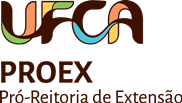A Contabilidade na relação interdisciplinar
criando, recriando e adaptando instrumentos para o processo de trabalho em uma outra economia
Resumo
Este trabalho objetiva refletir sobre a possibilidade de criação de um instrumental de controle para sanar as necessidades das iniciativas de economia popular e solidária em gerir seus fluxos de caixa e de organizar os registros das receitas e despesas incorridas durante determinado período. Com efeito, informações qualitativas e quantitativas que representem a realidade dessas tipologias organizativas são fundamentais para que as associações autogestionárias e outras tipologias desenvolvam suas ações de controle e organização. A pesquisa foi desenvolvida a partir da observação da rotina de trabalho dos grupos autogestionários. As análises foram feitas com base na metodologia de pesquisa-ação, conforme Thiolent (2011), visando observar o que atualmente está sendo aplicado, enquanto instrumentos de elaboração para pensar o controle dos fluxos de caixa, e como esses registros são organizados até o período em que serão divididas as sobras. Inferimos, portanto, como resultados desta pesquisa, além da relevante contribuição para a relação universidade/sociedade, a possibilidade, ainda que em processo, de contribuir de forma direta para sanar as necessidades das iniciativas de economia popular e solidária em gerir seus fluxos de caixa e de organizar os registros das receitas e das despesas incorridas durante determinado período. Nesse sentido, destaca-se a relevância que as informações coerentes possuem nessas organizações para fundamentar a tomada de decisões. Com efeito, observou-se uma predisposição e disponibilidade do grupo em compreender cada instrumento sugerido, bem como de perceber sugestões de grande valia para a organização dos controles necessários para a boa autogestão econômico-financeira da atividade desenvolvida no projeto.
Copyright (c) 2020 José Raimundo Lima, Carolaine Santana dos Santos

This work is licensed under a Creative Commons Attribution-NoDerivatives 4.0 International License.
Autores que publicam nesta revista concordam com os seguintes termos:
- Autores mantém os direitos autorais e concedem à revista o direito de primeira publicação.
- Autores têm autorização para assumir contratos adicionais separadamente, para distribuição não-exclusiva da versão do trabalho publicada nesta revista (ex.: publicar como capítulo de livro), com reconhecimento de autoria e publicação inicial nesta revista.

















